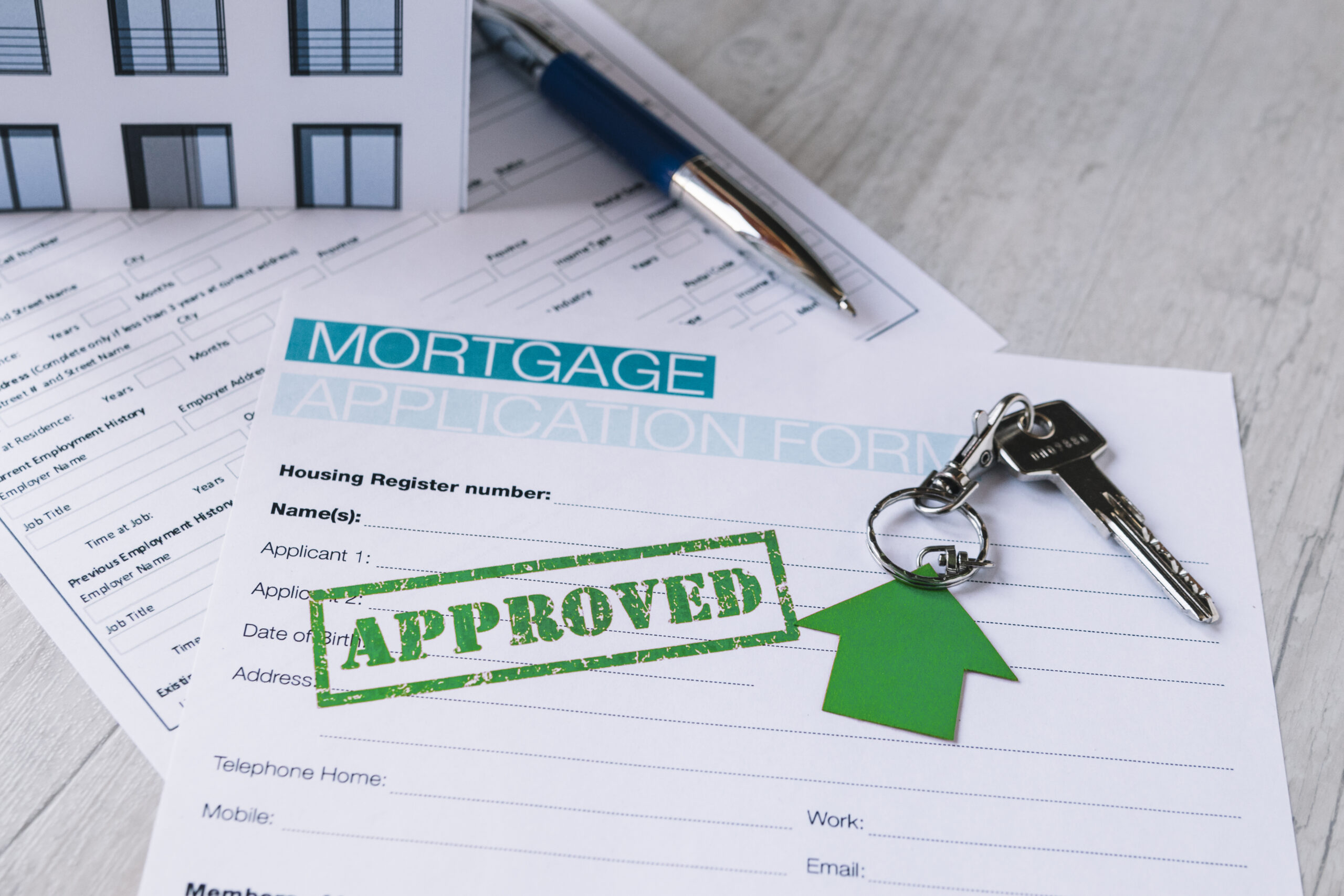
First-Time Homebuyer Mistakes: Critical Errors to Avoid
Buying your first home is a thrilling experience, but it can also be fraught with potential pitfalls. Many first-time homebuyers make mistakes that can cost them time, money, and peace of mind. By understanding these common errors and how to avoid them, you can make the process smoother and more enjoyable. This guide covers the critical first-time homebuyer mistakes make and offers tips on how to avoid them.
Mistake 1: Not Getting Pre-Approved for a Mortgage
One of the first steps in the home-buying process is getting pre-approved for a mortgage. Unfortunately, many first-time buyers skip this step, which can lead to several problems:
- Missed Opportunities: Without pre-approval, you might miss out on homes that get snapped up quickly by pre-approved buyers.
- Unrealistic Expectations: Pre-approval gives you a clear idea of what you can afford, helping you set realistic expectations.
How to Avoid It: Get pre-approved for a mortgage before you start house hunting. This involves providing your lender with financial documents like pay stubs, tax returns, and bank statements.
Mistake 2: Not Budgeting Properly
Many first-time homebuyer mistakes fail to create a comprehensive budget that includes all the costs associated with buying and owning a home. This can lead to financial strain and unexpected expenses.
Costs to Consider:
- Down Payment: Aim for at least 20% to avoid private mortgage insurance (PMI).
- Closing Costs: Typically 2-5% of the loan amount.
- Property Taxes: Varies by location.
- Homeowners Insurance: Required by most lenders.
- Maintenance and Repairs: Budget for regular upkeep and unexpected repairs.
- Utilities: Electricity, water, gas, and other services.
- Homeowners Association (HOA) Fees: If applicable.
How to Avoid It: Create a detailed budget that includes all these costs. Use online calculators and talk to your lender to get accurate estimates.
Mistake 3: Ignoring the Importance of Credit Score
Your credit score significantly impacts your mortgage terms. A lower credit score can result in higher interest rates, costing you more over the life of the loan.
How to Avoid It:
- Check Your Credit Score: Obtain a free credit report from annualcreditreport.com.
- Improve Your Score: Pay bills on time, reduce debt, and avoid opening new credit accounts before applying for a mortgage.
- Correct Errors: Dispute any inaccuracies on your credit report.
Mistake 4: Not Shopping Around for a Mortgage
Many first-time homebuyers go with the first mortgage offer they receive. This can result in missing out on better terms and rates available elsewhere.
How to Avoid It: Shop around and compare offers from multiple lenders. Consider factors like interest rates, loan terms, fees, and customer service. Don’t be afraid to negotiate for better terms.
Mistake 5: Overlooking Loan Options
There are various loan options available, each with its benefits and drawbacks. Many first-time buyers are unaware of these options and choose the wrong one for their situation.
Common Loan Options:
- Fixed-Rate Mortgages: Stable payments, good for long-term planning.
- Adjustable-Rate Mortgages (ARMs): Lower initial rates, but can increase over time.
- FHA Loans: Low down payments, ideal for buyers with lower credit scores.
- VA Loans: No down payment, available to veterans and active-duty military.
- USDA Loans: No down payment, available for rural property buyers.
How to Avoid It: Research different loan types and talk to your lender about which options might be best for you.
Mistake 6: Not Considering the Future
First-time homebuyer mistakes often focus on their current needs without thinking about the future. This can lead to buying a home that doesn’t suit their long-term plans.
Future Considerations:
- Family Growth: Will you need more space in the future?
- Job Stability: Are you planning to stay in the same area for several years?
- Resale Value: Will the home be easy to sell if you need to move?
How to Avoid It: Think about your long-term plans and how the home fits into them. Choose a home that can accommodate future changes.
Mistake 7: Skipping the Home Inspection
Some first-time homebuyer mistakes skip the home inspection to save money or speed up the process. This can lead to costly repairs down the road.
How to Avoid It: Always get a professional home inspection. The inspector will identify any potential issues with the home, giving you a chance to negotiate repairs or reconsider your purchase.
Mistake 8: Underestimating the Importance of Location
Location is one of the most critical factors in real estate, but some first-time homebuyer mistakes focus too much on the home itself and not enough on its location.
Location Factors to Consider:
- School Districts: Important if you have or plan to have children.
- Commute: Consider the distance to work, schools, and other important places.
- Amenities: Proximity to shopping, parks, and entertainment.
- Neighborhood Safety: Research crime rates and talk to neighbors.
How to Avoid It: Research different neighborhoods and choose a location that fits your lifestyle and needs.
Mistake 9: Making Emotional Decisions
Buying a home is an emotional process, but making decisions based on emotions can lead to regret. Some buyers fall in love with a home and overlook potential issues.
How to Avoid It: Make decisions based on facts and logic. Create a list of must-haves and deal-breakers, and stick to it. If you fall in love with a home, take a step back and consider all factors before making an offer.
Mistake 10: Not Understanding the Mortgage Process
The mortgage process can be complex, and many first-time homebuyer mistakes don’t take the time to understand it fully. This can lead to confusion and mistakes.
How to Avoid It:
- Educate Yourself: Learn about the mortgage process, from pre-approval to closing.
- Ask Questions: Don’t be afraid to ask your lender or real estate agent to explain things you don’t understand.
- Stay Organized: Keep all your documents organized and respond promptly to any requests from your lender.
Mistake 11: Not Negotiating
Some first-time buyers accept the seller’s asking price without negotiating. This can result in overpaying for the home.
How to Avoid It: Work with a real estate agent who can help you negotiate the best price. Be prepared to walk away if the seller isn’t willing to negotiate.
Mistake 12: Overextending Financially
Many first-time homebuyer mistakes stretch their budget to buy their dream home, but this can lead to financial strain and stress.
How to Avoid It: Stick to your budget and avoid overextending yourself. Consider your monthly income, expenses, and savings goals when determining how much you can afford to spend on a home.
Mistake 13: Ignoring Closing Costs
Closing costs can add up quickly, and many first-time buyers don’t budget for them properly. These costs typically include:
- Loan Origination Fees: Fees charged by the lender for processing the loan.
- Appraisal Fees: The cost of having the home appraised.
- Title Insurance: Protects against issues with the property title.
- Attorney Fees: If you hire an attorney to review the documents.
- Escrow Fees: Fees for the escrow service that handles the closing.
How to Avoid It: Ask your lender for a detailed estimate of closing costs and budget accordingly. You can also negotiate with the seller to cover some of these costs.
Mistake 14: Not Reviewing the HOA Rules
If you’re buying a home in a community with a homeowners association (HOA), it’s important to review the HOA rules and regulations. Some first-time buyers overlook this step and end up with restrictions they’re unhappy with.
How to Avoid It: Request a copy of the HOA rules and read them carefully. Make sure you’re comfortable with the restrictions and fees before making an offer.
Mistake 15: Forgetting About Home Insurance
Home insurance is essential for protecting your investment, but some first-time buyers forget to factor it into their budget.
How to Avoid It: Shop around for home insurance and choose a policy that provides adequate coverage. Budget for the monthly premium as part of your overall housing costs.
Mistake 16: Not Considering Resale Value
While it’s important to find a home that meets your needs, it’s also important to consider its resale value. Some first-time buyers choose homes with features that might not appeal to future buyers.
How to Avoid It: Choose a home with broad appeal and features that will likely attract future buyers. Consider factors like location, layout, and updates.
Mistake 17: Failing to Account for Maintenance and Repairs
Homes require regular maintenance and occasional repairs, and many first-time buyers don’t budget for these costs.
How to Avoid It: Set aside a portion of your budget for maintenance and repairs. A good rule of thumb is to save 1-3% of the home’s value each year for these expenses.
Mistake 18: Skipping the Final Walk-Through
The final walk-through is your last chance to inspect the home before closing. Some first-time buyers skip this step and miss out on identifying issues that need to be addressed.
How to Avoid It: Always do a final walk-through before closing. Check that any agreed-upon repairs have been made and that the home is in the expected condition.
Mistake 19: Underestimating Moving Costs
Moving costs can add up quickly, and many first-time buyers forget to budget for them.
How to Avoid It: Get quotes from moving companies and include these costs in your budget. Consider additional expenses like packing supplies and utility deposits.
Mistake 20: Not Using a Real Estate Agent
Some first-time buyers try to navigate the home-buying process without the help of a real estate agent. This can lead to missed opportunities and mistakes.
How to Avoid It: Work with a qualified real estate agent who can guide you through the process, help you find the right home, and negotiate the best price.
You can also read : Best Mortgage Tips: Top Advice for New Homebuyer
Conclusion
Buying your first home is a major milestone, and avoiding these common mistakes first-time homebuyer mistakes can help ensure a smoother and more successful experience. By getting pre-approved for a mortgage, budgeting properly, understanding the importance of your credit score, shopping around for the best mortgage, and considering your long-term plans, you’ll be well on your way to making a wise investment. Remember to think with your head, not your heart, and seek professional guidance when needed. Happy homebuying.






Leave a Reply